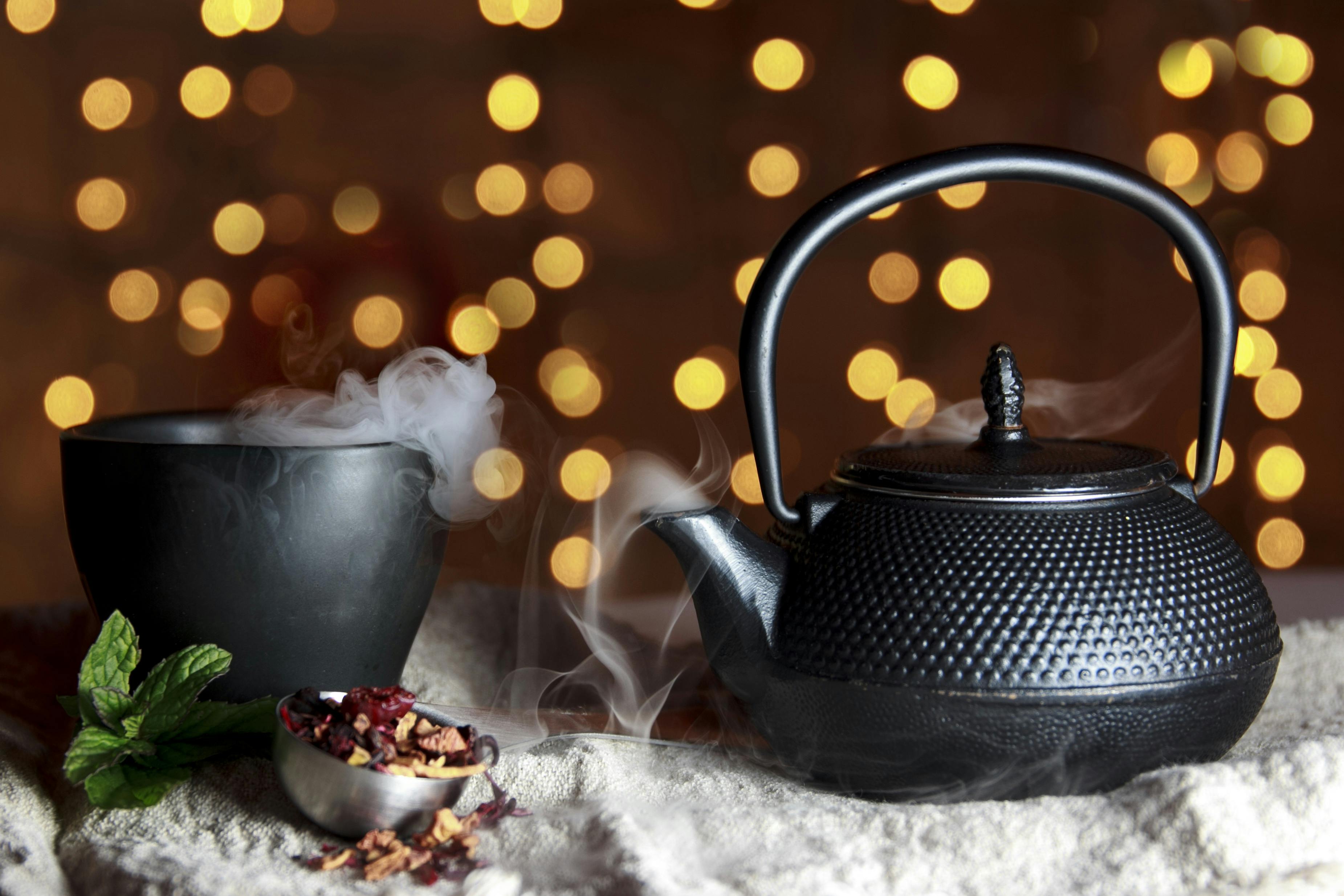Black tea is a popular beverage choice for many people worldwide. It is known for its distinct flavor and aroma, as well as its potential health benefits. But how many calories are in black tea? The answer may surprise you. Depending on the ingredients and preparation method, the number of calories in black tea can vary greatly. This article will provide an overview of the calories present in black tea, along with tips on how to make it healthier.A 8 fl oz cup of black tea typically contains 2 calories.
What Are The Benefits of Black Tea?
Black tea is one of the most popular types of tea around the world and has many health benefits. It has a deep, rich flavor and contains a variety of antioxidants and nutrients that are beneficial for overall health. Studies have shown that drinking black tea can have positive effects on everything from heart health to improved mental alertness. Here are some of the key benefits of black tea:
1. Improved Heart Health: Studies have found that drinking black tea can reduce the risk of coronary heart disease, stroke, and other cardiovascular problems. This is due to its high levels of flavonoids, which are powerful antioxidants that help protect against oxidative damage and reduce inflammation in the arteries.
2. Improved Mental Alertness: Black tea contains caffeine, which has been shown to improve alertness and concentration. It also contains l-theanine, an amino acid that has been found to reduce stress levels and improve cognitive performance.
3. Reduced Risk Of Cancer: Antioxidants in black tea can help protect against cancer-causing agents in the body by preventing DNA damage and reducing inflammation. Studies have also found that people who drink black tea regularly have a lower risk of developing certain types of cancer, such as colon cancer and breast cancer.
4. Strengthened Immune System: Black tea is rich in polyphenols, which are compounds that help boost immunity by fighting off viruses and bacteria in the body. It also contains vitamin C, which helps support healthy immune system function by fighting off free radicals that can cause cell damage.
Overall, there are numerous health benefits associated with drinking black tea regularly. From improved heart health to strengthened immunity, it is an incredibly beneficial beverage for overall wellness and should be a part of any healthy diet plan!
What Are The Side Effects of Drinking Too Much Black Tea?
Drinking too much black tea can have negative effects on your health. Overconsumption of black tea may lead to a variety of side effects such as insomnia, restlessness, irritability, headaches, increased heart rate, and jitteriness. It can also cause dehydration due to its diuretic properties and can lead to kidney stones.
In addition, excessive consumption of black tea may interfere with the absorption of certain medications or minerals and vitamins in your system. It is also possible that too much caffeine from black tea could cause digestive issues like constipation, stomach cramps and diarrhea.
The tannins in black tea may also interfere with iron absorption in the body which can cause anemia if you drink too much. If you are pregnant or breastfeeding, it is best to avoid drinking large amounts of black tea as it could reduce the amount of folic acid your body needs.
Finally, because black tea contains caffeine, it is important to keep an eye on how much you are drinking each day as excessive amounts over time can lead to negative physical and mental health effects such as anxiety and depression.
For those who are sensitive to caffeine or have underlying medical conditions, it is important to consult a doctor before increasing your daily intake of black tea.
How Does Black Tea Affect Weight Loss?
Black tea has many health benefits, and it is believed to help with weight loss. Studies have shown that drinking black tea can help reduce body weight and body fat, as well as decrease waist circumference. It can also increase energy expenditure and reduce appetite. The antioxidants in black tea, such as polyphenols and flavonoids, have been linked to increased fat oxidation and improved metabolism. Studies have also found that drinking black tea can reduce the risk of obesity-related diseases, such as type 2 diabetes, heart disease, and stroke.
In addition to helping with weight loss, black tea also has other health benefits. It is rich in antioxidants which can help protect against cell damage caused by free radicals. It can also reduce inflammation and aid digestion. Black tea is a great source of caffeine which can boost energy levels, improve focus and alertness, and enhance exercise performance.
When it comes to weight loss, the combination of drinking black tea and following a healthy diet and exercise plan is one of the most effective ways to achieve results. Regular consumption of black tea may be beneficial in aiding weight loss and maintaining a healthy lifestyle.
Is Black Tea Good For You?
Black tea is a popular beverage around the world, and it has been consumed for centuries for its many health benefits. Studies have shown that drinking black tea can help reduce the risk of heart disease, stroke, and other chronic illnesses. It can also help to improve mental alertness and provide a boost of energy. The antioxidants in black tea can help protect cells from damage and reduce inflammation in the body.
Black tea is also rich in polyphenols, which are compounds that may reduce the risk of cancer. In addition, it contains fluoride, which helps to strengthen teeth and bones. Regular consumption of black tea can also aid in weight loss by boosting metabolism and suppressing appetite.
Black tea is full of flavor but low in calories, so it’s an excellent choice for those trying to lose or maintain weight. It contains no sugar or artificial sweeteners, making it an excellent alternative to sugary drinks. Furthermore, because it’s naturally caffeinated, it gives you an energy boost without causing jitters like coffee does.
Overall, black tea is a healthy choice that provides numerous health benefits without any major drawbacks. Whether you enjoy drinking it hot or cold, adding a cup of black tea to your daily routine can be beneficial for your overall health and wellbeing.

How Much Caffeine Is In A Cup of Black Tea?
The amount of caffeine in a cup of black tea can vary, depending on the variety and type of tea used. Generally speaking, a cup of black tea contains about 14-70 mg of caffeine. For comparison, a cup of coffee contains around 95-200 mg of caffeine.
The exact amount of caffeine in black tea depends on several factors, such as the type and blend of tea leaves used, how long the leaves have been brewed, and the size and temperature of the water used for brewing. For example, using a higher temperature and shorter brewing time will usually yield a stronger cup with more caffeine.
In general, most popular varieties like English Breakfast or Earl Grey contain between 40-60 mg per 8-ounce cup. Some specialty teas like Matcha may contain up to 70 mg per 8-ounce cup. Decaf versions generally contain less than 10 mg per 8-ounce cup.
To reduce your caffeine intake from black tea, you can try using decaffeinated brands or lower your brewing time to reduce the amount of caffeine extracted from the leaves into your cup. You can also try adding herbs like chamomile or hibiscus to your brew for some additional flavor without increasing your caffeine intake.
Ultimately, how much caffeine is in a cup of black tea depends on the type used and how it’s brewed. Knowing these factors can help you make an informed decision about how much caffeine you’re consuming when enjoying a cup of black tea!
Green Tea vs. Black Tea
Green tea and black tea are two of the most popular types of tea around the world. While both teas come from the same plant, Camellia sinensis, they differ in flavor, color, and health benefits. Green tea is made from unfermented leaves and is processed in a way that preserves its antioxidants. Black tea is made by allowing the leaves to ferment before processing them. Both green and black teas have some health benefits, but green tea has more antioxidants than black tea.
When it comes to flavor, green tea has a lighter taste than black tea. It also has a grass-like aroma and tends to be less bitter than black tea. On the other hand, black tea has a stronger flavor with a more full-bodied taste that can be slightly sweet or smoky depending on the variety.
In terms of health benefits, both green and black teas are rich in polyphenols which can help protect against cell damage from free radicals. Green tea contains more polyphenols than black tea because it is less processed and has not been allowed to ferment as much as black tea. Green tea also contains catechins which are powerful antioxidants that have anti-inflammatory properties and can help reduce the risk of cancer and heart disease. Black tea contains fewer catechins than green but still has some health benefits including helping to reduce cholesterol levels and helping with digestion.
In conclusion, green and black teas both offer many health benefits but differ in flavor and antioxidant content. Green teas are generally lighter in flavor with higher levels of antioxidants while black teas have a stronger flavor with lower levels of antioxidants compared to green teas. Ultimately, choosing between green or black depends on personal preference and desired health benefits!
Does Drinking Black Tea Improve Your Health?
Drinking black tea is known to have many health benefits, including reducing the risk of heart disease and stroke, improving digestion, and providing antioxidants. Studies have also shown that regular consumption of black tea may help to reduce the risk of certain types of cancer, as well as improve mental alertness and focus. Additionally, black tea has been found to be beneficial in lowering cholesterol levels and helping the body to burn fat more efficiently.
Black tea contains a variety of compounds that are beneficial for health. For example, polyphenols are present in black tea which have antioxidant properties that can help protect cells from damage caused by free radicals. Theaflavins are also found in black tea which can help reduce inflammation and lower cholesterol levels. Other compounds such as catechins can help the body to process sugar more effectively and reduce blood sugar levels.
In addition to providing health benefits, drinking black tea can also be beneficial for relaxation and stress relief. Black tea contains an amino acid called theanine which helps promote relaxation without causing drowsiness. It is thought that this effect may be due to its ability to increase alpha waves in the brain which are associated with relaxation and mental clarity.
Overall, drinking black tea has many potential health benefits that make it an ideal beverage for those looking to improve their overall well-being. The antioxidants present in black tea can help protect cells from damage while also helping reduce inflammation and improve digestion. Additionally, it may help lower cholesterol levels while providing relaxation and stress relief through its calming effects on the body and mind.

Conclusion
In conclusion, black tea is a healthy beverage choice for most people. It contains very few calories but still provides a rich source of antioxidants and other beneficial compounds that could help support overall health. When consumed without added sugar and milk, it can be an excellent part of any healthy diet.
Overall, making black tea part of your daily routine can provide many health benefits. It is important to remember to keep an eye on the amount of sugar or milk added to your tea, as these can significantly increase the calorie count. However, when consumed in moderation, black tea can be a great addition to any healthy diet and lifestyle.
